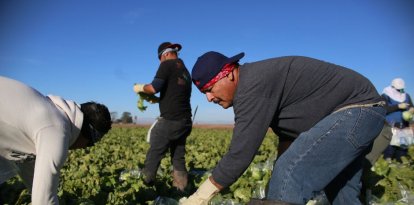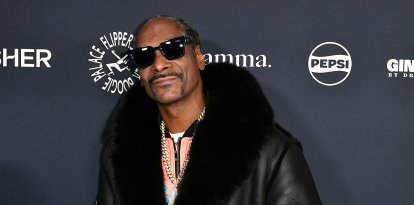Frank Furedi to 'Voz Media': "Today, your biological sex and your birth are more important than what you do for yourself"
We talked to an expert to find out the causes behind the increase in people assuming different identities.

(Imagen cortesía de Frank Furadi)
Sacheen Littlefeather is the latest person to lie about her identity. In her case, she pretended for most of her life to be Native American when she never truly was. That's why, at Voz Media, we reached out to Frank Furedi. He is an emeritus professor of sociology at the University of Kent and author of '100 Years of Identity Crisis: The Culture War for Society.' He also wrote an article that alludes to the Littlefeather case. He is an expert on the issue.
Sacheen Littlefeather was exposed as a fake Native American. Over the years, we have seen many people fake their identity. Is this a growing phenomenon?
Well, I think there are examples. For example, if you read the book Don Quixote, written hundreds of years ago, he claims to be a knight from a previous era. Sometimes people pretend to be something they are not. I think that with the rise of identity politics, particularly in the Anglo-American world, it seems that it's become quite common that people try to be what they are not, or people who are unhappy with what they are assume a different identity.
So, do you think the unhappiness you told me about could be the reason or could there be other reasons?
There are many reasons. I think there are a lot of people who are alienated from themselves and a lot of people that think if they adopt an identity of a popular group, one with a lot of moral status, they will benefit from that. That’s why you have, for example, white people pretending to be Native Americans, because of the certain advantage, certain moral status. They believe that they represent the suffering and therefore they have recognition.
Some call it ‘transracial impostor syndrome.’ Is it really a syndrome, or it is ideologically driven?
I think it's a combination of both. I think it is due to a psychological disorientation of many people that, in some cases, is just being an impostor. Just basically using it for their advantage. It's the continuum between these two motives which often intertwine.
This racial impostor syndrome or the combination of both, as you just told us, is more frequent. Do you think this is because we are in a world where we need to have representation of as many races as possible?
I don't think it is a need. I think it's due to the fact that we, somehow, feel that having a particular identity doesn't suit you or does not really have a lot of moral worth in society so you basically try to live a different life because it will either make you feel better or it will improve your position... It is very, very common now.
In many ways, it's the whole explosion of transgenderism, where we encouraged boys to think they are girls and girls to think they are boys. I think it's also a reflection of this, where all these young people wake up one morning and decide that being the opposite sex will make them happy. And no, it's who they are.
Rachel Dolozel is another case. She is white but identifies herself as a black person even though her parents are white. Why do you think this happens?
I think it's an examples of black people trying be Native American. In the old days, when racism was very strong, a lot of black people tried to be white. But now, it's the reverse. It's the other way around where whites try to be black. I don’t know, it’s a very confusing situation.
How should we face this trend as a society?
I think these trends are powerful and are going to be even stronger because we emphasize the importance of identity, but in the ritual form, more of what they do or what they achieve or what kind of work they do. So, what's important is not that you are a doctor, nurse or a plumber, but that you're white or Black or Chinese... Your biological sex and your birth are more important than what you do for yourself. There was a time when you respected people for what they did rather than for their biological qualities they had.

























